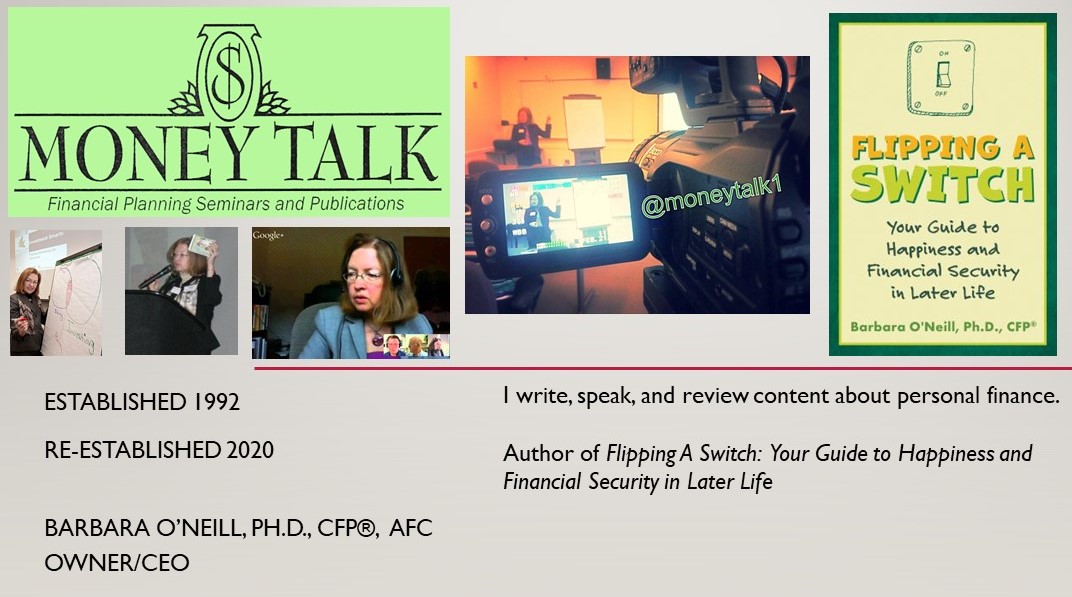I recently reviewed notes that I took at recent presentations about retirement. Below are seven recommendations that stood out to me and might be helpful to Money Talk blog readers:
Define Your New Self-
People may retire after decades of work, but they do not retire from life. To
prepare for this transition, make a point to define yourself by who you are
rather than what you do. Start with the words “I am [your name]” and then
describe a passion (e.g., travel), a hobby (e.g., stained glass), a pet (e.g.,
“I have a dog named Sadie”), a favorite sport (e.g., “I love to play
pickleball), or some other aspect of your life without incorporating your job
title or employer.
Be Realistic About
Retirement Age- Retirement age is an important
assumption in retirement planning and can happen earlier than expected. Studies
have found an average gap of about 4 years between expected and actual
retirement age and about half of U.S. workers retire earlier than expected. The
older the age that people plan to retire at, the less likely they are to reach
that goal. One study found that people retire a half year early for each year
of work planned after age 61.
Know the Planning Levers-
There are four key moving parts in the retirement planning process. People can
retire earlier or later, save/invest more money or less, spend more money or
less, and take more or less risk with investments. It is ironic that many
people who have sufficient money to live without an employer paycheck (i.e.,
financial independence) often choose to work longer.
Face Your Fears-
Why do some people delay retirement even when they reach financial independence?
One reason is that they don’t want to deal with future changes or they fear
conflicts with their spouse (e.g., a retirement living location), so they keep
on working. Conversely, many people who need to work in later life to pay their
bills often can’t due to health issues or layoffs.
Understand Potential Life
Expectancy- Retirement is “not just 10 years of golf and you
die.” Rather, it can last 20 to 30 years (or longer) for many people. This
necessitates attention to both personal health habits (to live the highest
quality of life for as long as possible), adequate savings (to not outlive your
money and rely solely on Social Security), and future long-term care needs.
Consider Charitable Gifting- People start to
think more about leaving a legacy as they get older. Research indicates that
people who gift time and/or money to charities often live longer than others.
Also, many donors want to know the results of their giving. If a charity does
not provide this information, donors may stop gifting. Donors also select
charities that align with their values.
Consider the Four Seasons- The four seasons
of retirement planning are: Accumulation (e.g., saving/investing in taxable
accounts and qualified retirement plans), Distribution (e.g., pensions, annuities,
dividends and interest, and required minimum distributions), Preservation (not
running out of money during your lifetime), and Transfer (passing on assets
when you pass away).
When planning for later life, it is best
to be proactive- not reactive. Additional information about retirement related
topics and transitions in later life can be found in my book, Flipping a
Switch.
This post provides
general personal finance or consumer decision-making information and does not
address all the variables that apply to an individual’s unique situation. It does
not endorse specific products or services and should not be construed as legal
or financial advice. If professional assistance is required, the services of a
competent professional should be sought.






No comments:
Post a Comment